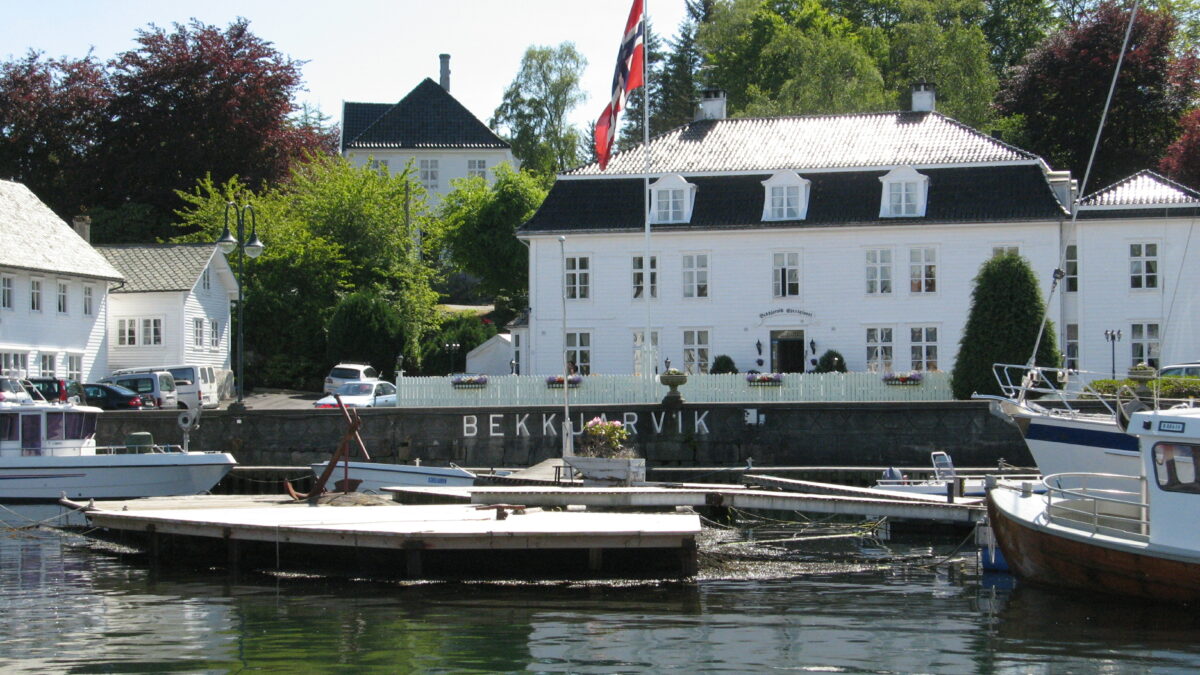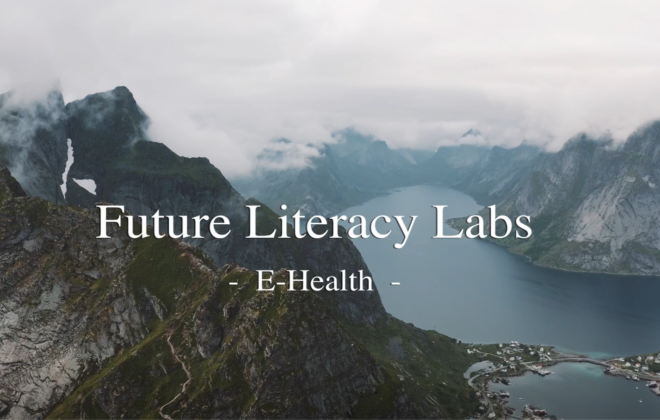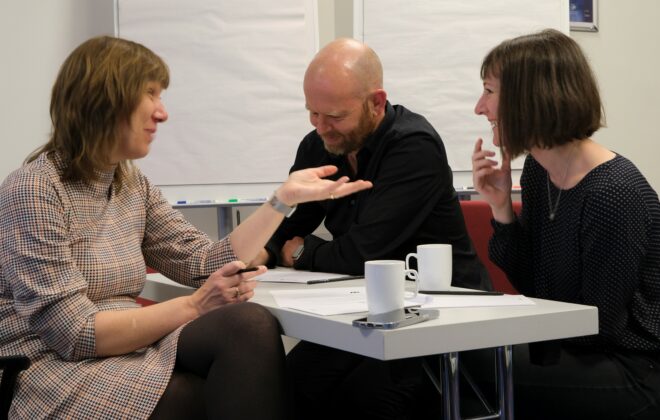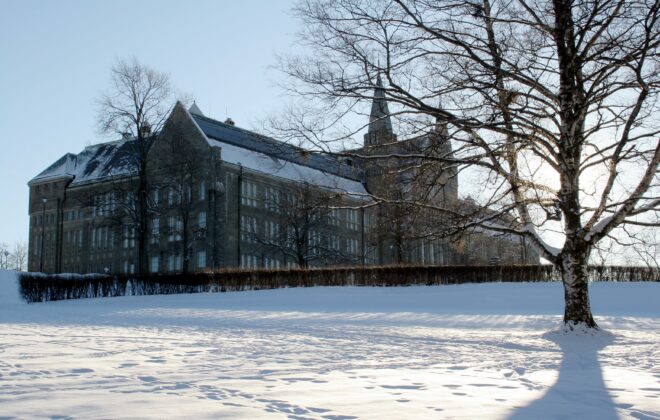AFINO summer school: Transdisciplinary RRI
Join the AFINO summer school, held in beautiful coastal surroundings a short trip from Bergen. Numerous RRI challenges will be on the agenda during the five days of the school. The summer school is organised by SVT and AFINO, in collaboration with DLN.
Researchers and practitioners in the field of Responsible Research and Innovation face numerous challenges, from its concrete, meaningful application to its evaluation and the various resistance forces they meet. This summer school is about exploring how synergies between RRI and inter- and transdisciplinarity might help navigate these challenges and increase resilience among the RRI community.
We invite PhD candidates from AFINO, DLN and broader RRI/CSR (Corporate Social Responsibility) networks to join our AFINO summer school at Bekkjarvik Gjestgiveri (Austevold). Early career and senior researchers, and R&D practitioners in the field of RRI/CSR, are also welcome. The summer school is held from 23rd to 27th August.
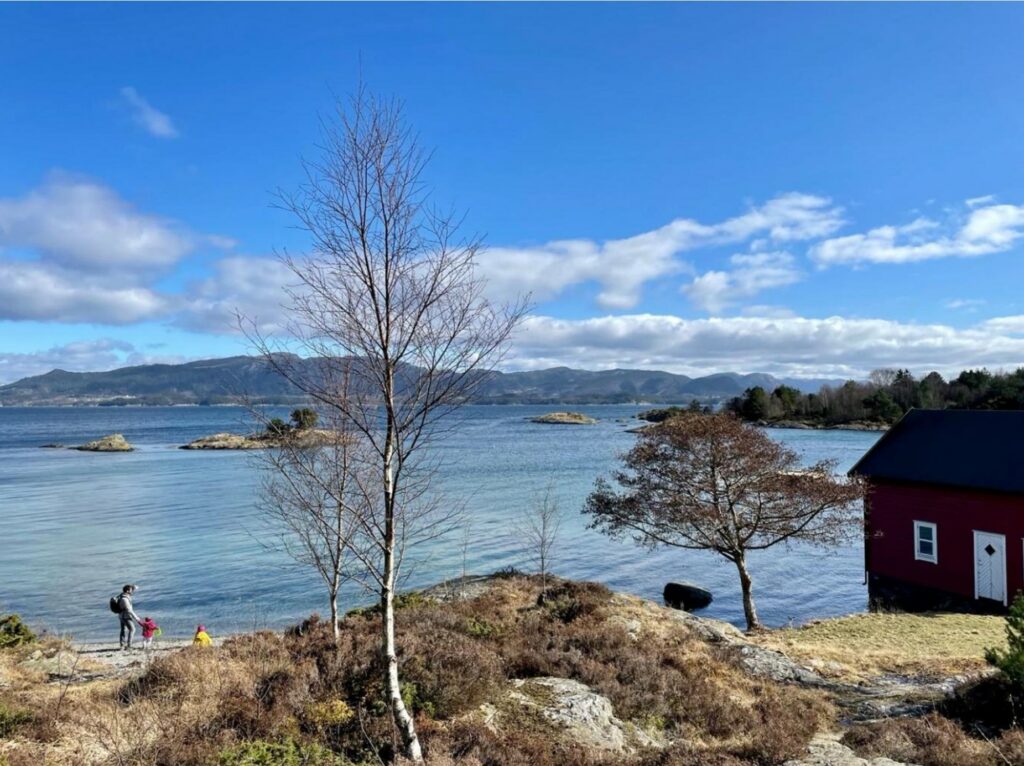
Historic guesthouse by the coast
After more than a year of online lectures, courses and workshops, this summer school will be exclusively held ‘in real life’, where being, thinking and discussing together in various formal (lectures, group work…) and informal, creative settings will be given special attention. In particular, practical and experiential activities will be planned as an integral part of the summer school.
We have therefore planned this summer school to be held at Bekkjarvik Gjestgiveri, located in coastal surroundings at Austevoll. This place has been known for their hospitality since the 17th Century, and is easily accessible from Bergen.
The summer school will take on maximum twenty participants, and for those who gets admitted, all costs for food and accommodation will be covered. Participants must cover transportation costs themselves.
RRI challenges
Responsible Research and Innovation (RRI) has become in the last years an important mode of doing research, with attention to the social, environmental and economic impacts of research and innovation processes, by encouraging reflexive, inclusive, responsive and anticipatory practices. However, RRI researchers and practitioners are facing challenges at many levels: how to concretely implement RRI in meaningful, responsible ways? How to evaluate RRI and its short- and long-term impacts? How to navigate the various sources of resistance to RRI, for instance disciplinary traditions which RRI is not entirely congruent with, or the problems of justifying and legitimising this extended mode of doing research?
In this summer school, we want to explore the potential for inter- and transdisciplinary insights and dynamics to help address some outstanding RRI challenges. In interdisciplinary groups, participants will deploy a combination of concrete tools and approaches to conceptualise and represent RRI-related challenges, with examples from their own projects. The participants will therefore receive training in inter- and transdisciplinarity, and be given creative opportunities to work in an interdisciplinary setting.
Objectives of the AFINO summer school
This summer school aims to reflect on RRI as conducted in an extended, collaborative mode. In particular, we will:
(i) expose participants working on RRI and/or CSR to inter- and transdisciplinarity concepts, approaches and tools;
(ii) explore how inter- and transdisciplinarity can help conceptualise, represent and navigate challenges inherent to RRI and/or CSR; and
(iii) encourage participants to work creatively in an interdisciplinary setting and concretely reflect on how they could link their own RRI and/or CSR research to different disciplines.
One important aspiration is to encourage a change in participants’ everyday research practices by supporting critical thinking in a ‘safe’ arena. Another aspiration is to extend participants’ networks across disciplines, to create a resilient RRI community that they can rely on beyond the scope of the course.
Structure of the course
Prior to the summer school, participants will be provided with a compulsory reading list. Drawing from this reading list, the course work will be split between lectures, focusing on what inter- and transdisciplinarity means for RRI researchers, interspaced with creative group work by the participants.
Participants will be assigned to groups of people with diverse disciplinary backgrounds. On the first day, each group will be assigned an RRI challenge (related to the concrete implementation of RRI, or methods around RRI, or the evaluation of RRI), and over the five days, they will work in an interdisciplinary way on conceptualising and representing this RRI challenge in a creative format (text, maps, short videos, illustrations, diaries, podcasts…). Groups will be supported by the teaching team, and the practical and experiential activities will support this creative group work.
Over the summer school, the days will be organised around lectures, practical and exercises with inter- and transdisciplinary concepts and tools, and concrete examples of RRI challenges in ongoing projects. The groups will have time to creatively represent their challenge in the format of their choosing.
On the last day, groups will present their conceptualised and represented RRI challenge for feedback by the other participants and the teaching team.
The preliminary programme is as follow:
| Monday | Tuesday | Wednesday | Thursday | Friday | |
| Morning | Arrive at the venue | Lecture on inter- /transdisciplinarity Related group activity | Lecture on inter- /transdisciplinarity Related group activity | Lecture on inter- /transdisciplinarity Related group activity | Presentation from the groups and feedback from teaching team + other groups Evaluation of the summer school |
| Afternoon | Introduction to the summer school Round table + expectations Presentation of the RRI challenges and constitution of groups | Lecture on the challenge of the concrete implementation of RRI Group work on their assigned challenge | Lecture on the challenge of participatory methods in RRI Group work on their assigned challenge | Lecture on the challenge of RRI evaluation Group work on their assigned challenge | We depart after lunch |
Tasks, assignment and ECTS
In addition to the preparatory readings, participants will have three main tasks over the summer school:
- Through holding a diary, reflect on how inter- and transdisciplinary approaches and tools could relate to their own research and discuss this in their groups.
- Conceptualise and represent in interdisciplinary groups an RRI challenge in a chosen creative format (text, maps, short videos, illustrations…), that will be uploaded to the ‘RRI gardens’ webpage.
- Present their conceptualised RRI challenge to the rest of the group and teaching team, and peer-review the RRI challenges of other groups.
Completion of the readings and active participation in the three tasks above will earn participants 3 ECTS (study points) from the University of Bergen.
Participants can choose to earn an additional 2 ECTS, by writing a 10-15 pages essay following the summer school, which will be supervised by a member of the teaching team. The essay should further reflect on one (or several) challenges of RRI met in the participant’s project, for instance by exploring how interdisciplinary tools and approaches help manage these challenges.
Registration deadline: 5th July 2021
We will select candidates according to the relevance of their background (RRI/CSR) and their interest with the topics of the summer school. Participants will be informed whether they are accepted in the course shortly after the 5th July.
Update: The registration is now closed – for more information contact Anne Blanchard Anne.bremer@uib.no.
Costs
Food and accommodation will be covered. Participants will have to cover transportation costs to Bergen themselves.
Teaching team so far includes:
Anne Blanchard, Centre for the Study of the Sciences and the Humanities (SVT), University of Bergen (anne.bremer@uib.no), leader of the AFINO Research School.
Erik Thorstensen, OsloMet, leader of the AFINO WP4 – Building blocks for enhanced societal responsibility.
Arnt Fløysand, Western Norway University of Applied Sciences, leader of the AFINO project Responsible innovation in the Norwegian salmon farming industry.
Roger Strand, Centre for the Study of the Sciences and the Humanities (SVT), University of Bergen, and the Centre for Digital Life Norway (DLN).
Anders Braarud Hanssen, OsloMet and the Centre for Digital Life Norway (DLN).
Jean-Paul Vanderlinden, CEARC and Université de Versailles Saint-Quentin en Yvelines, France.
Organiser
Anne Blanchard, Centre for the Study of the Sciences and the Humanities (SVT), University of Bergen (anne.bremer@uib.no), leader of the AFINO Research School.
Featured image: Wikimedia Commons

Anne Blanchard
Anne Blanchard is a researcher at the Centre for the Study of the Sciences and the Humanities at the University of Bergen, where she is working on projects studying how science is employed for complex and uncertain climate and health challenges.
She is also the leader of The AFINO Research School. Read more about Anne at AFINO's webpage.

